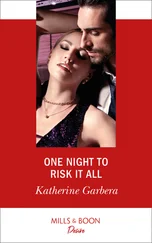Kayla sat at the table every morning with a list of all the lessons she needed to teach me about love and loss and God and potatoes and churning butter and crushing pepper and washing decent linens and better linens. Lessons about making lace, covering a wound, throwing a ball and untangling a knot. I needed to know how to pray well, how to sit straight, how to write a heartfelt condolence letter and a gracious invitation. I had to become proficient at keeping clean, mending a dress, buttering my bread like a lady and knowing which cuts of meat were which.
Kayla filled hundreds of sheets of paper this way, papers that gathered in the house like snow, dusting everything at first and then getting swept into corners or under the furniture, where they sat in banks waiting their turn. Kayla scolded herself for time lost coddling and swooning when she should have been teaching. Hersh tried to remind her how much she loved being the mother of a baby, how sweet those days had been. He did not say how hard he had worked to make such sweetness possible, and how much he himself had loved it, too.
True to the original deal, every few weeks was a year of my life: I was four, I was eight, I was ten again. We had little birthday parties, Kayla’s and Hersh’s faces aglow with time’s miraculous passage.
But it did not stop as Hersh had planned.
Kayla rushed me along, right past myself. I was eleven, and then I was twelve. I was thirteen. I was suddenly meant to be complete. At night I peered into the oval-shaped mirror that hung above my dresser. I saw my face, which was pinkish, surrounded by dark brown curly hair. I looked unremarkable to myself. Like a person, a girl, no one in particular. Day by day, I checked for differences, and to my surprise, they started showing up. The same freckles on my forehead, but a different shape to my jaw. The same inward slant to my front teeth, but a new pitch in my voice. I climbed on a chair and took the mirror down, its cool frame in my hands, and passed it down my body so I could see what my chest looked like, my belly, my legs. I found the long, straight line of a girl was curving a bit, rounding at the hips. Strands of hair had begun to appear. My nipples peered tentatively out, bigger and softer than before.
That night, I spit all over the bed again. I rubbed it in. “I am alive here,” I said to myself. “I know what I know.” I tried to smell myself on the pillow — my hair had been there, I could tell. There were strands left, long brown snakes reclining. “Bullfight, rain, horse, saddle, hunger, hair, life,” I said to myself, trying to hold all of it. But it wasn’t those things I worried about forgetting — those things were presented to me each day, a list of activities and lessons and facts about the world. What I could feel slipping off me was my original life. Even while I aged at impossible speeds, the years piling up around me day by day, I could feel myself getting smaller, getting thinner, losing words, losing the memory of my real house and my real family and the smell of cabbage in the kitchen. “Cabbage,” I said, “cabbage, cabbage, cabbage, cabbage.”
I wrote the word down on my list, underlined it. “My house smells like cabbage. My house is one room. My mother is not my mother. My father is not my father. Is this how I love them? Am I alive in this place?” It was getting easier and easier to think of them as Perl and Vlad, the way everyone else did. For this I pinched myself hard on the arm until my nails left two moons.
Mine was an instant decision. I did not think about what would happen after, or how long before someone dragged me back. I was going home. I would sleep the night in my old bed with my old family around, and I did not care what happened next. I put my shoes on and slipped out the back door. I pressed my fists to my eyes for a minute, and when they came away the shimmer of darkness moved aside to reveal a milky, moonlit path toward home. My nightgown fluttered. It was not raining at that moment but the town had its misty coat on. I felt wonderful, walking alone in the right direction.
My cheeks filled with blood when I saw the house, and then the door. The door with its brass handle, wet under my hand. But when I turned it, my hand only slipped. The door was locked. I repeated it to myself in disbelief. “The door is locked.” Had one of my parents always slid that latch, keeping me and the others safe inside? Now I was one of the people being kept out. I put my ear against the wood but I could not hear my family inside. I did not knock. I had wanted to appear there, to slip back in unnoticed. Not to be asked inside like a guest. I lay down on the stoop and listened to the breeze flip a dead leaf over and over across the ground. It was a treeless leaf, an orphan, caught on an instant breeze. Something invisible carried it. I kissed the brass doorknob on the big blue door, and I stood up to go.
I was truly no longer the cabbage picker’s youngest daughter. They had locked the door behind me. In order to grow, to become the Lena that my new parents invented, I ate my way through the stale heels of bread and dry bits of cake under the bed, left over from my days as a hungry baby. I even ate the ants, who feasted despite imminent danger. I felt them walking the hills of my tongue, trudging through the wet cave. I stopped chewing and paid attention to their needle-feet. I swallowed them whole. I thought of them in my stomach, continuing to eat, the food prechewed for them, readily enjoyable. I ate the food until it pushed out against me. I ate the food until it hurt. I closed my eyes, full of bread and ants. From outside came the sound of dogs howling to track each other in the dark, calling out the difference between one dog’s home and the other’s. Inside the room, exhausted, I tried to stretch out the hours of peaceful night before the sun threw light down on me again, woke me up into another day of growing.
The next morning, I sneaked out early and went on two missions. First, I visited the stranger. “Do I survive this?”
“Yes,” she answered, firmly.
“How?”
“You just do.” I told her it was a disappointing answer, but thank you anyway, and I left her alone. I found the Committee for What We Have and Where We Have It doing their dawn mapping in the bakery. I pulled them outside into an abandoned shed. “Quickly,” I said. The shed still held a few rusted old spades. Mice and bugs must have happily lived in the walls, but they did not skitter or scratch. The wood smelled rich and ripe, full of the sweet butter of near-collapse.
“Measure me,” I demanded, knowing that the next new moon, the next measuring day, was weeks away.
“Okay, okay, no need to be rude,” the greengrocer said. This was a dutiful committee and they began at the bottom. Toes, feet, ankle to knee, knee to hip, hip to shoulder.
“That looked like more than one and a half fingers to me,” the greengrocer’s wife nagged. The barber inchwormed his finger along my forearm again.
“It’s exactly one and a half,” the greengrocer said.
“I wouldn’t say exactly .” The greengrocer’s wife scrunched her nose.
I asked, “Am I bigger than before? Am I smaller than before?”
“It’s the first time we’ve measured you,” the baker said. “How old are you?” I shook my head. “Sure, kid, you’re bigger. You’re growing, just like you should be.”
The greengrocer’s wife whispered into my ear, “Let me know if you need help with how to fasten a brassiere. We also sell other items.”
My heart fluttered its wings, but did not manage to escape my chest. It was contained in the prison of my body. “Am I supposed to be older or younger?” I asked the greengrocer. “Am I supposed to be thinner or fatter? Am I supposed to remember or forget?” He put his hand on my cheek.
Читать дальше












